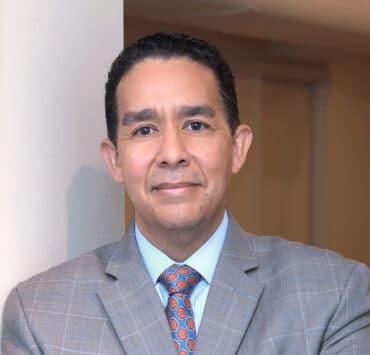Sarah Nicholson’s career in HR has taken her from Canada to the US, from the oil and gas industries to life science, biotechnology, and healthcare technology. Along the way, she’s built a niche for herself in the world of total rewards.
Athenahealth’s VP of Total Rewards recently spoke to American Healthcare Leader about mental health and wellness, diversity and inclusion, and how thoughtful improvements to employee compensation can help healthcare organizations thrive.
You’ve worked in a variety of regions and industries. What have been some of the important common threads throughout these experiences?
I’ve been fortunate enough to be part of great organizations that have given me a chance to add value across various facets of total rewards, each providing different experiences and perspectives. The question has always been: how do you best attract and retain talent, while managing costs for the organization? The common thread has been about harnessing what’s most important to employees and ensuring that what you offer them aligns with their needs and allows them to be their best selves.
In particular, working in both biotech and healthcare technology (mission-driven communities that place health and well-being at the forefront) gave me further visibility into the importance of caring for all aspects of who an employee is. We need to care for employees financially, physically, and emotionally—this has become nonnegotiable.
Are these issues emerging more in today’s world?
I believe they are, yes. It impacts how organizations in healthcare and other industries attract and retain talent. At athenahealth, for example, our mission was to deliver high-quality healthcare for all. Taking a holistic approach helped us attract and retain the best talent to carry out that important mission.
“There are lots of ways organizations think they’re doing great things, but sometimes you’re working with wrong assumptions.”
Sarah Nicholson
What goes into putting that kind of talent philosophy in place, and what can other HR leaders learn from what you’ve accomplished?
At athena, we took steps to make sure we were investing in the benefits that actually hit the mark for employees. We surveyed them, and in doing so we found out that we were missing a certain benefit plan type that a good portion of our employees wanted. This also allowed us to make adjustments to existing and underutilized plans, and introduce tools to help them select a match that works better for them.
There are lots of ways organizations think they’re doing great things, but sometimes you’re working with wrong assumptions. We had a big push to help employees pay off student loans, but our survey showed us that it was one of the last things they wanted us to do. Are you doing something because you think it’s important, or is it really important?
What are some trends you’re seeing in healthcare and healthcare tech?
I think that more than ever before, there has to be a close values alignment between company offerings and employees. Employees already expect you to take care of them because you’re a healthcare organization. We all know there is a talent shortage, and so you have to differentiate on more than salaries. Show you really value your employees. At a bare minimum, employees expect your value proposition to align with your external mission and brand. From there, it’s important to make sure you are transparent and your benefits are aligned with the employees’ interests.
That’s changed in recent years.
Right. It’s more drastic. Employees once came to work and got paid and left, but now there is a much closer integration between home and work life.
And how should employers respond?
Show employees you care.
Right. But how do you do that?
You have to take a step back and look at market trends and build a strategy, but you have to do that without forgetting your existing employee population. It takes listening. Make employees part of the solution. Look at data and metrics to see things that might reveal deep-rooted issues. My teams have examined feedback coupled with benefit usage and plan selection by geolocation, therapy usage, time off, and pharmacy usage as ways to dig into what is going on. Time off is critical. Create a leadership environment where employees are empowered to use the benefits that are being offered to them, without judgement or penalty.
“Employees already expect you to take care of them because you’re a healthcare organization. We all know there is a talent shortage, and so you have to differentiate on more than salaries. Show you really value your employees.”
Sarah Nicholson
Mental health issues are making their way more into the forefront. What have your teams done in response?
Unfortunately, it’s still a little taboo surrounding discussions of mental health, and employees often have privacy concerns with these benefits being associated with their employer, but no company or organization is exempt from the effects of mental health, and we need to create safe spaces to discuss these issues.
At athena, it was about creating a space for dialogue. We did that with fireside chats, where we brought in trained mental health professionals to drive conversations and take anonymous questions. These were live virtual meetings, which we did not record, and we used them as vehicles to address real-time challenges our employees were facing and to remind employees about resource groups, assistance programs, and other resources. It needs to be an ongoing conversation, even if it’s uncomfortable.
What role do diversity, equity, and inclusion play?
It’s another area that requires more than a one-time conversation. We need to build inclusive organizations and offer inclusive benefits. I’ve expanded benefits packages to cover gender reassignment, provide same-sex spouses coverage, and offer adoption and surrogacy support.
Tell me about your goals going forward. What are you focused on today?
No matter where I am, I’ll be focused on doing the hard work that brings real results through people. We have to have hard conversations and do new things. Everyone wants the best and the brightest to be a part of their organization . . . but what are you willing to do to get that talent?
Editor’s note: At the time of press, Sarah Nicholson had left athenahealth.


